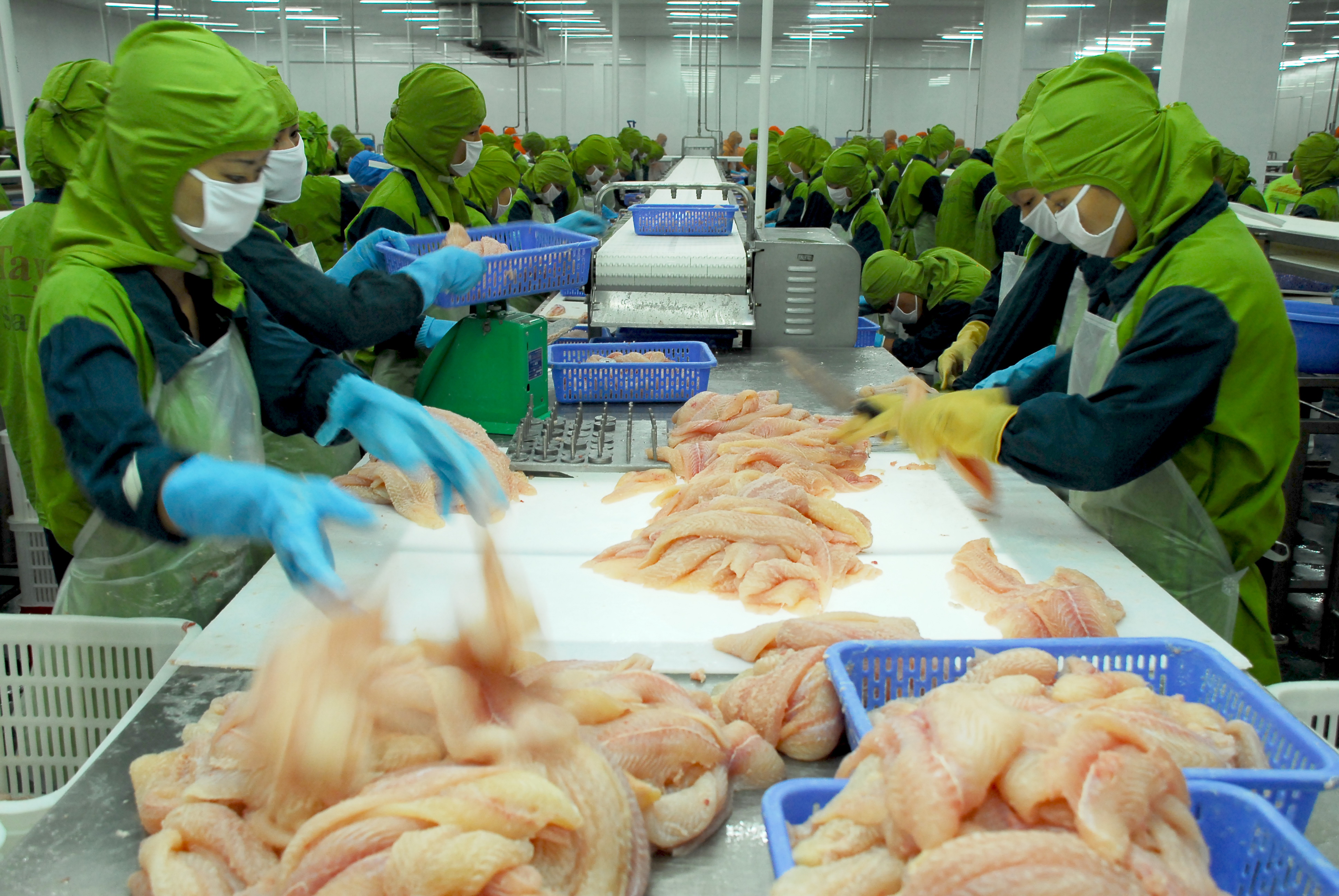The U.S. Department of Commerce (DOC) has planned to reduce its anti-dumping tax for more Vietnamese pangasius exporters after the most recent administrative review on anti-dumping tax rates for imported goods, according to a state agency under the Vietnamese Ministry of Industry and Trade.
Accordingly, after the 10th preliminary results of administrative review (POR10), 24 local pangasius exporters will enjoy a tax cut for shipments to the U.S. from August 1, 2012 to July 31, 2013, said the Competition Management Department. This means that they will receive a refund for any taxes paid in that period above the new tax line.
Besides Vinh Hoan Co, headquartered in the Mekong Delta province of Dong Thap, which already enjoyed an anti-dumping tax exemption, the 23 others will see their tax rate cut in half from $1.2 per kilogram in the POR9 to $0.58 per kilogram, said the department.
Among these companies are Hung Vuong Group, Asia Commerce Fisheries Joint Stock Co, Binh An Seafood Joint Stock Co, Cadovimex II Seafood Impott-Export and Processing Joint Stock Co, Can Tho Import-Expott Joint Stock Co, C.P. Vietnam Corp, Cuu Long Fish Joint Stock Co, Dai Thanh Seafoods Co Ltd, and Fatifish Co Ltd.
However, during this review period, the DOC has also decided to increase the tax rates for all other Vietnamese exporters excluded from the list from $2.11 per kilogram to $2.39 per kilogram. The same rate applied for Anvifish Co as the firm failed to meet the deadline in submitting the dossiers for tax cut to the DOC.
The tax rate levied on Vietnamese companies is generally unreasonable as the DOC continued to use Indonesia as a country of reference for the calculation of anti-dumping margins, said the Vietnam Association of Seafood Exporters and Producers (VASEP).
In March of last year, after POR9, the DOC cut the tax rates imposed on Vietnamese pangasius exporters following POR8 in 2012.
VASEP expressed great discontent as the DOC had suddenly changed the country of reference, thereby making the anti-dumping duty imposed on Vietnam pangasius skyrocket.
In the previous administrative review, the DOC had repeatedly protested the choice of Indonesia as the third country for reference to calculate the input costs of the pangasius production because this country does not have adequate data on prices and lacks basic financial parameters, said VASEP.
Moreover, Indonesia is a net importer of frozen pangasius fillets, mainly from Vietnam, and exports no pangasius for the world market.
Previously, the DOC always chose Bangladesh as the reference for eight consecutive years to calculate the input costs of the Vietnamese pangasius industry.
As the preliminary decision on POR10 will not take effect until a final decision is issued, all parties involved will have 120 days to review the preliminary decision.
This is an important time for Vietnamese exporters as they can collect more data and make convincing arguments demanding lower duties from the DOC, said VASEP.
In February of this year, local experts warned that the exports of Vietnamese pangasius to the U.S. will face major difficulties after the U.S. Congress passed the Farm Bill, which contains provisions directly affecting the Vietnamese industry.
The terms that directly affect the exports of foreign products are new regulations that meat, fish, and eggs imported into the U.S. must have country of origin labels confirming that the foreign farming and processing environment is compatible with that of America.
In addition, the U.S. Congress also approved the transfer of the function of monitoring catfish, including pangasius from Vietnam, to the U.S. Department of Agriculture (USDA) from the U.S. Food and Drug Administration (FDA).
Dao Tran Nhan, Vietnamese Minister Counselor for Trade in the U.S., told Tuoi Tre (Youth) newspaper that Vietnam will take at least five to seven years to upgrade farming and processing standards so that they can meet the cultivation, production, and processing benchmarks in the U.S. before they can resume exports to that country, based on the provisions of the new Farm Bill.
“In other words, there are fewer chances for Vietnamese seafood to enter the U.S. market after the law is passed,” Nhan said.






















































